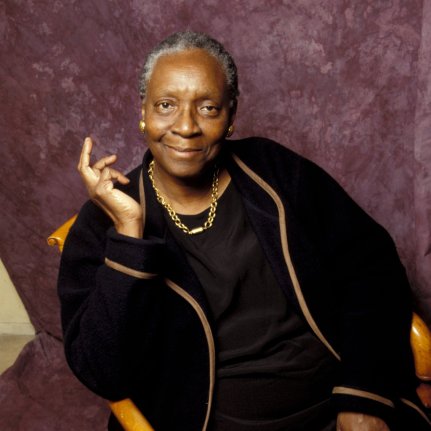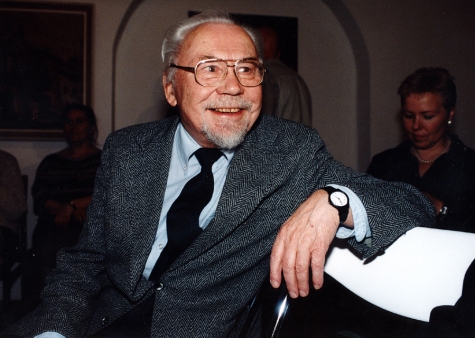De Franse schrijfster Maryse Condé werd op 11 februari 1937 in Pointe-à-Pitre op Guadeloupe geboren. Zie ook alle tags voor Maryse Condé op dit blog.
Uit: Segu (Vertaald door Barbara Bray)
“Dousika was a nobleman or yerewolo, a member of the royal council, a personal friend of the king and the father of ten legitimate sons, ruling as fa or patriarch over five families, his own and those of his younger brothers. His compound reflected his standing in Segu society. Its tall facade overlooking the street was ornamented with sculptures as well as triangular patterns carved into the clay, and surmounted by turrets of varying height and pleasing effect. Within were a number of flat-roofed huts, also of mud, connected by a series of courtyards. The first contained a magnificent dubale tree whose foliage formed a dome of greenery, supported by some fifty columns, roots grown down from the main trunk.
The dubale might be called the witness and guardian of the life of the Traores. Beneath its powerful roots the placentas of many of their ancestors had been buried after a safe delivery. In its shade the women and children sat to tell stories, the men to make family decisions. In the dry season it gave protection from the sun. In the rainy season it provided firewood. At night the spirits of the ancestors hid in its branches and watched over the sleep of the living. When they were displeased they showed it by making faint sounds, at once mysterious and as clear as a code. Then those experienced enough to decipher them shook their heads and said: ‘Beware – tonight our fathers have spoken!’
Anyone who crossed the threshold of the Traore compound knew at once what sort of people they were, guessed that they owned plenty of good land planted with millet, cotton and fonio, worked by hundreds of slaves – house slaves and captives. There were storerooms crammed with bags full of cowrie shells and gold dust lavishly bestowed by the king, the Mansa. In a paddock behind the huts were Arab steeds, purchased from the Moors. Signs of wealth were everywhere.
And why was the outer courtyard empty now, which was usually swarming with people? With girls and boys, all naked, the first with a string of beads or cowrie shells around their waists, the second with only a cotton string. With women pounding or sieving millet, or spinning cotton as they listened to the jokes of a jester or the epics of a griot singing for a dish of gruel. With men chatting together as they sharpened arrows for hunting or whetted farming implements. Dousika, getting more and more vexed, went on into the second courtyard, overlooked by the huts of his three wives and of Sira, his concubine.
He found the latter lying prostrate on a mat, her beautiful face gleaming with sweat and distorted with suffering. ‘Where is everyone?’ he barked.
She made an effort to sit up, and said in her imperfect Bambara, ‘By the river, koke.’
‘By the river?’ he almost yelled. ‘What are they all doing there?’
‘A white man!’ she managed to murmur. ‘There’s a white man on the bank of the Joliba!’
A white man? Was the woman delirious? Dousika looked down at her belly, which was enormous under the loosely tied pagne, then up, apprehensively, at the clay walls of the hut. Alone with a woman about to give birth!”

De Litouwse dichter Kazys Bradūnas werd geboren in Kiršai, Rayon Vilkaviškis, op 11 februari 1917. Zie ook alle tags voor Kazys Bradūnas op dit blog.
Verbannen dichters
Verbannen dichters – woestijncactussen,
Geen vocht,
Alleen zand rondom ,
Toch groeien en bloeien ze,
Doornige rode bloesems.
Jaren vervagen,
Zand bedekt hun sporen.
Alleen de verbannen dichters
Blijven,
Groeien
En bloeien
Met smartelijke karmozijnrode bloemen.
Wanneer jouw hart en het mijne
Wordt doorboord door de doorn van een gedicht,
Laten we niet huilen –
Verbannen dichters – woestijncactussen
Voeden zich met ons bloed.
Vertaald door Frans Roumen

Zie voor nog meer schrijvers van de 11e februari ook mijn blog van 11 februari 2019 en ook mijn blog van 11 februari 2018 deel 2.
